Alexene Farol Follmuth is a first-generation American, a romance enthusiast, and a lover and writer of stories. Alexene has penned a number of adult SFF projects under the name Olivie Blake, including the webtoon Clara and the Devil with illustrator Little Chmura and the internationally bestselling The Atlas Six. My Mechanical Romance is her YA debut, to be followed by Twelfth Knight from Tor (2024). She lives in Los Angeles with her husband, goblin prince/toddler, and rescue pit bull.
I had the opportunity to interview Alexene, which you can read below.
First of all, welcome back to Geeks OUT! Could you tell us a little about yourself?
Thank you so much for having me! I am Alexene Farol Follmuth, author of YA romcoms My Mechanical Romance and forthcoming Shakespearean remix Twelfth Knight. I am occasionally known as Olivie Blake, the author of multiple adult SFF titles including The Atlas Six.
What can you tell us about your latest book, Twelfth Knight? What was the inspiration for this project?
Twelfth Knight was my combination pandemic/pregnancy book, meaning it was written during a period that was very limited both space- and mobility-wise. Given that I, like many people, was forced to live primarily in my own imagination, I found myself falling back on things that brought me joy—in this case, romcom adaptations from the 90s and 2000s like 10 Things I Hate About You, Clueless, and She’s the Man. When I realized I had an idea for how to adapt my favorite Shakespeare play, Twelfth Night, for a more contemporary context—authentically queering the Viola/Olivia relationship, for example, and creating a masculine identity for Cesario without playing gender identity for laughs—I knew it could be a vehicle for a story about self-acceptance, meaningful coexistence, vulnerability, and, of course, the antics and absurdity of love.
Whenever I write for the young adult age group, I find myself revisiting the circumstances of my own adolescence. Because My Mechanical Romance is a hypothetical projection of what life could have been had I not been repeatedly shown the exit doors as a young woman exploring STEM subjects, the feminine protagonist of that book doesn’t share a temperament with me—by necessity, she is more flexible, much sunnier, and quicker to forgive. In Twelfth Knight, the feminine protagonist of Viola is much closer to who I actually was: a slightly mercurial and “unlikable” female character who often felt misunderstood, othered, and angry with the world. Systemically, I wanted to acknowledge that anger is something many teens feel, particularly in predominantly white, upper class, heteronormative spaces, and very few are “allowed” to express it. In terms of Vi as a character, I wanted to reassure other girls who felt similarly unlovable that, actually, it’s okay to want to be taken as you are—but that can only happen if you are brave enough to let yourself be known, and therefore (hideously! in some cases) perceived.
Since this book is centered a bit around gaming, I was wondering if you have any personal connections or memories about gaming yourself that you would like to mention?
I’m not a gamer myself, but I was very active in the fanfiction community for many years, and one of the best things about fandom spaces like Tumblr is that when your mutuals go through new and ever-evolving hyperfixations, you find yourself delighted (if slightly captive) in following them down their latest rabbit hole. There’s massive overlap between people who love tabletop RPGs/MMORPGs and people who love SFF media, and many of those community experiences are shared. So, after a few years of observing what it was like to be a woman in male-dominated gaming spaces, I asked if anyone wanted to share their experiences with me. Almost everything that happens to Vi in the first few chapters of the book comes directly from a real anecdote by a Tumblr user or AO3 reader, like the expectation that she cook or provide snacks to the boys in her RPG group, or that any kindness on her part is an expression of romantic interest.
As a writer, what drew you to the art of storytelling in general, specifically young fiction and romance?
Prior to any attempts at a career in fiction, I wrote a very mentally healthy four million words of fan fiction (she says, sardonically) before choosing to focus primarily on my own worlds. Fanfic definitely gave me my proverbial ten thousand hours of training when it came to crafting characters, narrative voice, and relationship arcs, with an incomparable volume of peer review. (As an aside for developing writers, the one thing fanfic absolutely cannot teach you when it comes to novel writing is pacing—in fics, everyone is pretty chill about a random side quest, provided there’s only one bed.)
In all seriousness, creativity is a very important factor when it comes to managing my mental health. As I like to put it, the gift is the curse; my madness, so to speak, is my magic, and wrangling the demons on the page makes everything else much easier when it comes to peaceable coexistence.
I specifically started writing YA fiction for two reasons: one, my husband, who is a physics teacher, asked me to write something that would bring more young women into science, and I’m not one to turn down an opportunity to get an A in marriage. The second is because I realized that while I tend to enjoy the freedom of writing for more experienced readers who are willing to go along with unconventional narrative forms and complex themes, there was also something very valuable about speaking directly to younger readers—it felt like an opportunity to sit down with my younger self and tell her all the things she needed to hear. I suppose at my great age it feels like a privilege to provide some reassuring narrative shape to the unpredictable chaos of youth.
How would you describe your writing process?
I’m a pantser, or to put it in a more dignified way, a discovery writer. For me, the fun is in discovering the story along the way. The first draft is all about telling a story to myself, and then, once I realize what the story even was, I fill in the plot holes and refine it for someone else to conceivably understand. Personally, I find that pre-writing techniques or silly little details like “timelines” and “plot” just get in my way—at least until it’s time to revise. That’s when the equally fun but very distinct energy of crisis management, problem-solving, and excessive sweat begins. I usually work on multiple projects in varying stages to avoid becoming too bored or anxious about any single work, and while everything I write contains meaningful versions of my past selves, my favorite book is always the next one.
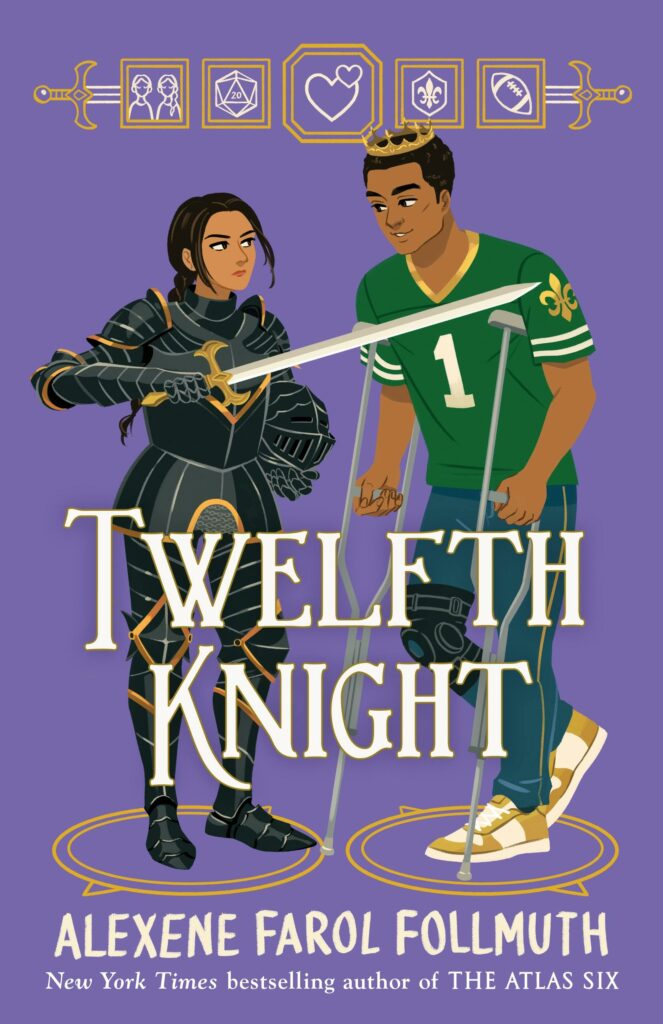
Growing up, were there any stories in which you felt touched by/ or reflected in? Are there any like that now?
Absolutely. My teenage-ly annotated copy of I Capture the Castle by Dodie Smith would be extremely embarrassing for anyone else to see. I also recently re-read This Lullaby by Sarah Dessen, one of my absolute favorites from my youth, and realized that I may just be subconsciously reinventing Remy and Dexter over and over again. I still identify strongly as an Alanna when it comes to Tamora Pierce’s Tortall books (I would have chosen Prince Jonathan, but then again I’m weak for a crown prince archetype). There wasn’t much to make me feel seen in terms of identity back then, but the opportunity to read diverse YA now is genuinely healing my inner child—titles like Legendborn by Tracy Deonn and An Impossible Thing to Say by Arya Shahi still make me feel like I’m understanding something about myself at that age.
As a writer, who or what would you say are some of your greatest creative influences and/or sources of inspiration in general?
Shakespeare, of course. I like to think I’m a mix of highbrow and low, where there’s an undercurrent of classics like The Count of Monte Cristo by Alexandre Dumas or Homer’s The Odyssey, but also the sparkle of a Guy Ritchie fight scene. I already mentioned Sarah Dessen and Dodie Smith, who are definite standouts from my youth, and I absolutely loved Arthurian books that are now more commonly defined as romantasy, like The Mists of Avalon by Marion Zimmer Bradley, and accounts of history by female characters, like Philippa Gregory’s Tudor books and her Cousin’s War series. In terms of contemporary influences, I’d point to V.E. Schwab, Zadie Smith, Elena Ferrante, Elif Batuman, Carmen Maria Machado, and Ottessa Moshfegh. All very excellent at voice, all very creative with form—two elements of fiction I am always excited to engage with.
Neil Gaiman, a definite influence of mine, once said daydreaming is crucial to writing, and I believe that is true. The ability to let my thoughts meander freely is perhaps the most important tool for creativity I have. Inspiration comes from the freedom to imagine something different, and new ideas come from the opportunity to experience something new—which is exactly why writing during the pandemic was so hard. So, for that particular era, I of course have to thank the aforementioned films. In general, though, I think the evolution of publishing to more cross-genre fluidity means I can be equally influenced by Gothic romanticism, theoretical physics, country house murder mysteries, and reality TV, and that will somehow lead to something.
What are some of your favorite elements of writing? What do you consider some of the most frustrating and/or difficult?
I love every stage of writing for one reason or another (except for when it’s going badly). I love the creative energy of drafting (except for when I hate it). I love the problem-solving of revising (except for when I hate it). I love the weird marination period where you have something stuck in your head but haven’t realized yet that you already started writing (except for when I hate it, which is when I’m supposed to be doing something else). I don’t always love having to do those things within the highly variable context of time and space? Deadlines, other obligations, my friggin inbox. But every minute spent writing is a great one (unless it’s going badly, and then it’s the worst).
Aside from your work, what are some things you would want readers to know about you?
One of my great loves in this life is a good bop—you can find playlists for all my books on my public Spotify (I’m on there as olivieblake).
What’s a question you haven’t been asked yet but that you wish you were asked (as well as the answer to that question)?
I like to joke that I went to the Taylor Swift School for Easter Eggs, meaning that I bury a lot of references in my stories for people to find if they’re into that kind of meta-scavenging. It’s hard to know what to mention in particular off the top of my head, but most of my books contain references to each other.
What advice might you have to give for any aspiring writers?
A basic one, but: the first draft isn’t the book. You can always fix it later. Like training for a marathon, you kind of have to finish a book to know how to write one. The first thing you write is usually a little bit derivative, but that’s okay—no words are ever wasted. After a certain point, the thing you’re writing is as good as you know how to make it, so move on, try something new, and make the next one better. Publishing involves rejection at every level, so resilience and adaptability are king. Depending on your intended genre/age group, you can have a viable career in self-publishing or hybrid publishing if you enjoy running your own business. For traditional publishing, trends move in approximately 5 year cycles—if the market doesn’t want your story now, that doesn’t mean it never will.
Are there any other projects you are working on and at liberty to speak about?
I’m mainly doing Olivie Blake things in the adult SFF space—my story anthology, Januaries, releases this fall, and next year I have two books coming out: Gifted and Talented, which is a family dramedy that’s basically Succession with magic, and Girl Dinner, which is a satire about a cannibal sorority.
Finally, what books/authors would you recommend to the readers of Geeks OUT?
Everyone I’ve mentioned so far, of course, but also Gwen and Art are Not in Love by Lex Croucher—another Arthurian-esque story that’s also a wonderfully funny queer coming-of-age—and of course the oeuvre of Chloe Gong, with whom I have joined forces to rewrite all of Shakespeare.

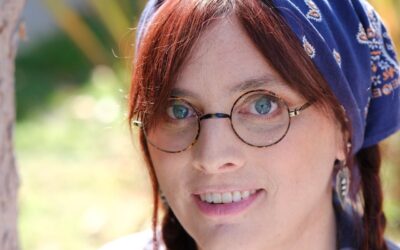
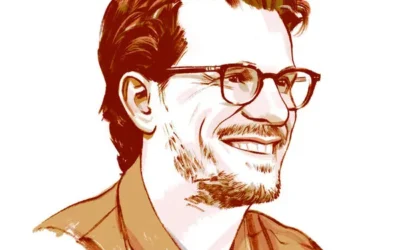
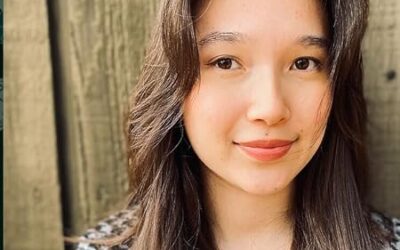
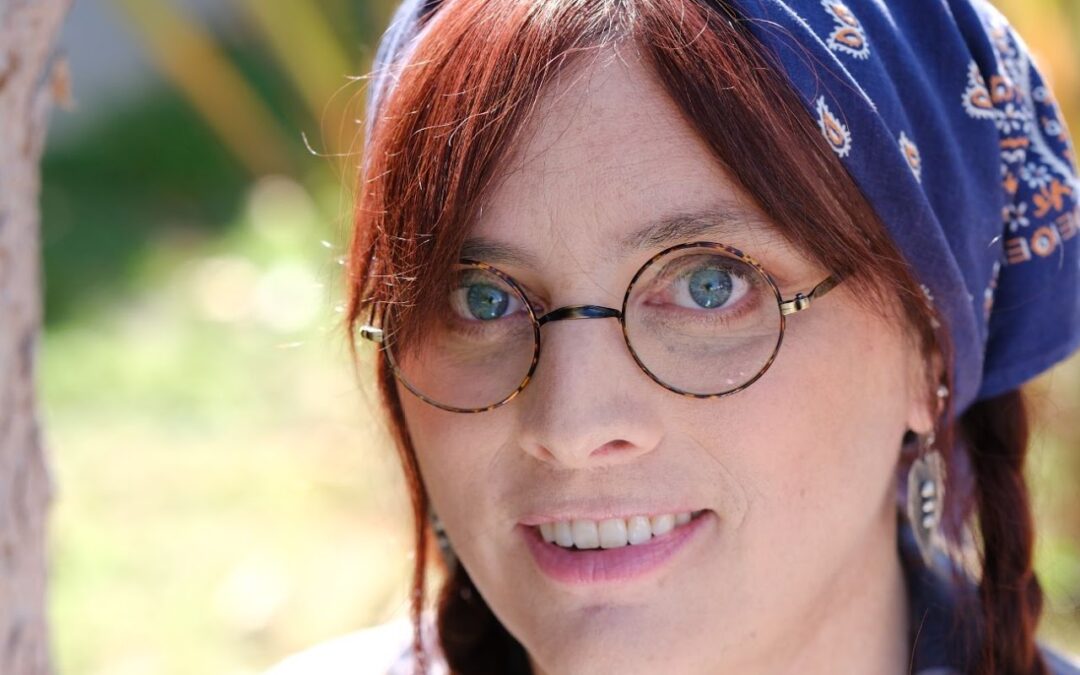

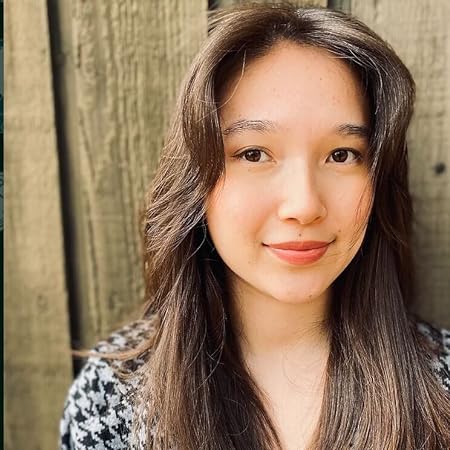
0 Comments